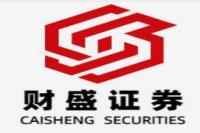Ford's Electrifying Gamble in Indonesia: A Deep Dive into the 2025 EV Investment
Meta Description: Ford's Indonesia EV investment in 2025 – analyzing market potential, challenges, and the future of electric vehicles in Southeast Asia. Explore the strategic implications and risks for Ford's ambitious plan.
Wow, Ford's heading to Indonesia with a big EV push in 2025! This isn't just another press release; it’s a bold strategic move that could reshape the Southeast Asian automotive landscape. This isn't just about selling cars; it's about establishing a foothold in a rapidly growing market, navigating complex political and economic realities, and, frankly, taking a massive gamble. Think about it: Indonesia, a nation brimming with potential but also grappling with infrastructure challenges and fluctuating energy prices, is becoming a key battleground for the future of electric mobility. This isn't a walk in the park; it's a high-stakes game of chess, and Ford's just made a significant move. We'll dissect this decision, revealing the potential triumphs and pitfalls, and exploring the broader implications for the global EV market. Get ready for a deep dive into the fascinating world of automotive strategy, Southeast Asian economics, and the electrifying future of transportation. This isn't your grandpappy's Ford; this is a company evolving, adapting, and betting big on a future powered by electricity. Are they right to do so? Let's find out! Prepare to be amazed, intrigued, and maybe even a little bit nervous for the Blue Oval's ambitious journey.
Ford's Indonesia EV Investment: A Strategic Masterstroke or Risky Venture?
Ford's announcement of a significant electric vehicle (EV) investment in Indonesia by 2025 has sent ripples throughout the automotive industry. This isn't just another market entry; it's a calculated bet on a region poised for explosive growth in the EV sector. But is it a smart move? Let's explore the multifaceted aspects of this decision.
The Indonesian market presents a compelling opportunity. With a burgeoning middle class and a rapidly expanding automotive market, Indonesia offers a massive potential customer base for EVs. However, the path to success won't be easy. The country currently faces significant challenges, including the need for improved charging infrastructure and the development of a robust supply chain for EV components. Ford will need to navigate these hurdles effectively to realize its ambitions.
Why Indonesia?
- Huge Market Potential: Indonesia boasts a population exceeding 270 million, with a growing middle class eager for modern transportation solutions.
- Government Support: The Indonesian government is actively promoting the adoption of EVs through various incentives and policies. This supportive environment is a significant draw for foreign investors.
- Strategic Location: Indonesia's geographical location within Southeast Asia provides access to a wider regional market, potentially establishing a regional hub for EV production and distribution.
- Raw Material Access: Indonesia is rich in nickel, a crucial component in EV batteries, giving Ford a potential edge in securing a reliable and cost-effective supply chain.
Challenges Ahead:
- Infrastructure Development: The lack of widespread charging infrastructure remains a significant obstacle. Ford will need to invest heavily in establishing a robust charging network to support EV adoption.
- Supply Chain Complexity: Building a reliable and efficient supply chain for EV components in Indonesia will require navigating complex logistical challenges.
- Competition: The Indonesian market is already attracting significant interest from other major automakers, creating a highly competitive landscape.
- Economic Volatility: Indonesia's economy is subject to fluctuations, which could impact consumer demand and investment returns.
Analyzing the Risks and Rewards
The decision to invest in Indonesia is inherently risky, but the potential rewards are equally substantial. Successfully establishing a strong EV presence in Indonesia could provide Ford with a significant competitive advantage in a rapidly growing market. However, failure to overcome the challenges outlined above could lead to significant financial losses. It’s a high-stakes game – a real-life business case study in calculated risk.
Ford's success will depend on several key factors, including its ability to:
- Develop a compelling EV product line tailored to the Indonesian market. This includes considering local preferences, price points, and range requirements.
- Establish strong partnerships with local businesses and government agencies. Collaboration is crucial for navigating regulatory hurdles and building a robust supply chain.
- Invest heavily in infrastructure development. This includes building charging stations and upgrading the electricity grid.
- Effectively manage the risks associated with economic volatility and political instability. This requires a robust risk management strategy and a deep understanding of the local context.
The Future of EVs in Southeast Asia
Ford's move is a significant indicator of the growing importance of Southeast Asia in the global EV market. The region is experiencing rapid economic growth, creating a fertile ground for EV adoption. However, the success of EVs in Southeast Asia will depend on overcoming several challenges, including infrastructure development, affordability, and consumer awareness.
The long-term implications of Ford's investment are far-reaching. It could spur further investment in the Indonesian EV sector, leading to the creation of new jobs and the development of a more sustainable transportation system. However, it also poses challenges to established automakers and could accelerate the shift towards electric mobility in the region.
Ford's Indonesia Strategy: A Deeper Look
Ford isn't just showing up; they’re building a comprehensive strategy. We're talking about localized production, partnerships with local businesses, and an aggressive push to build charging infrastructure. This isn't a quick in-and-out; it's a long-term commitment. This hints at a deeper understanding of the market than many competitors – they're not just selling cars; they're building an ecosystem. It's a smart, albeit risky, move that could pay off handsomely in the long run. Think of it as a long-term investment in a burgeoning market.
Frequently Asked Questions (FAQs)
Q1: Why is Ford investing in Indonesia specifically?
A1: Indonesia offers a massive untapped market with a growing middle class, government support for EV adoption, and access to crucial battery raw materials like nickel. It’s a strategic move to gain a foothold in a key growth area.
Q2: What are the biggest challenges Ford faces in Indonesia?
A2: Building adequate charging infrastructure, establishing a reliable supply chain, navigating intense competition, and managing economic volatility are major hurdles.
Q3: Will Ford's EVs be affordable for the average Indonesian consumer?
A3: This is a key question. Ford will need to carefully price its EVs to make them accessible to a wide range of consumers. Government incentives could play a significant role in making EVs more affordable.
Q4: How will Ford compete with established automakers in Indonesia?
A4: Ford will need to offer a compelling product line tailored to Indonesian preferences, build strong partnerships, and effectively market its EVs. Differentiation and a strong brand reputation will be vital.
Q5: What is the timeline for Ford's EV rollout in Indonesia?
A5: The official announcement points toward a significant investment by 2025. The exact timeline for model launches and infrastructure development remains to be seen.
Q6: What are the broader implications of Ford's investment for the Southeast Asian EV market?
A6: Ford’s move could trigger a domino effect, attracting further investment and accelerating the transition to electric mobility in the region. It signals a significant shift in the global automotive landscape.
Conclusion
Ford's decision to invest heavily in the Indonesian EV market is a bold and strategic move that carries both significant risks and potentially enormous rewards. The success of this venture will depend on overcoming a number of challenges, including infrastructure development, supply chain management, and competition. However, if successful, this could redefine Ford's position in the global automotive market and significantly accelerate the adoption of electric vehicles in Southeast Asia. It’s a gamble, yes, but one that could pay off big time – a testament to Ford's evolving strategy and its willingness to embrace the rapidly changing automotive landscape. The next few years will be crucial in determining whether this electrifying gamble pays off. Stay tuned!



